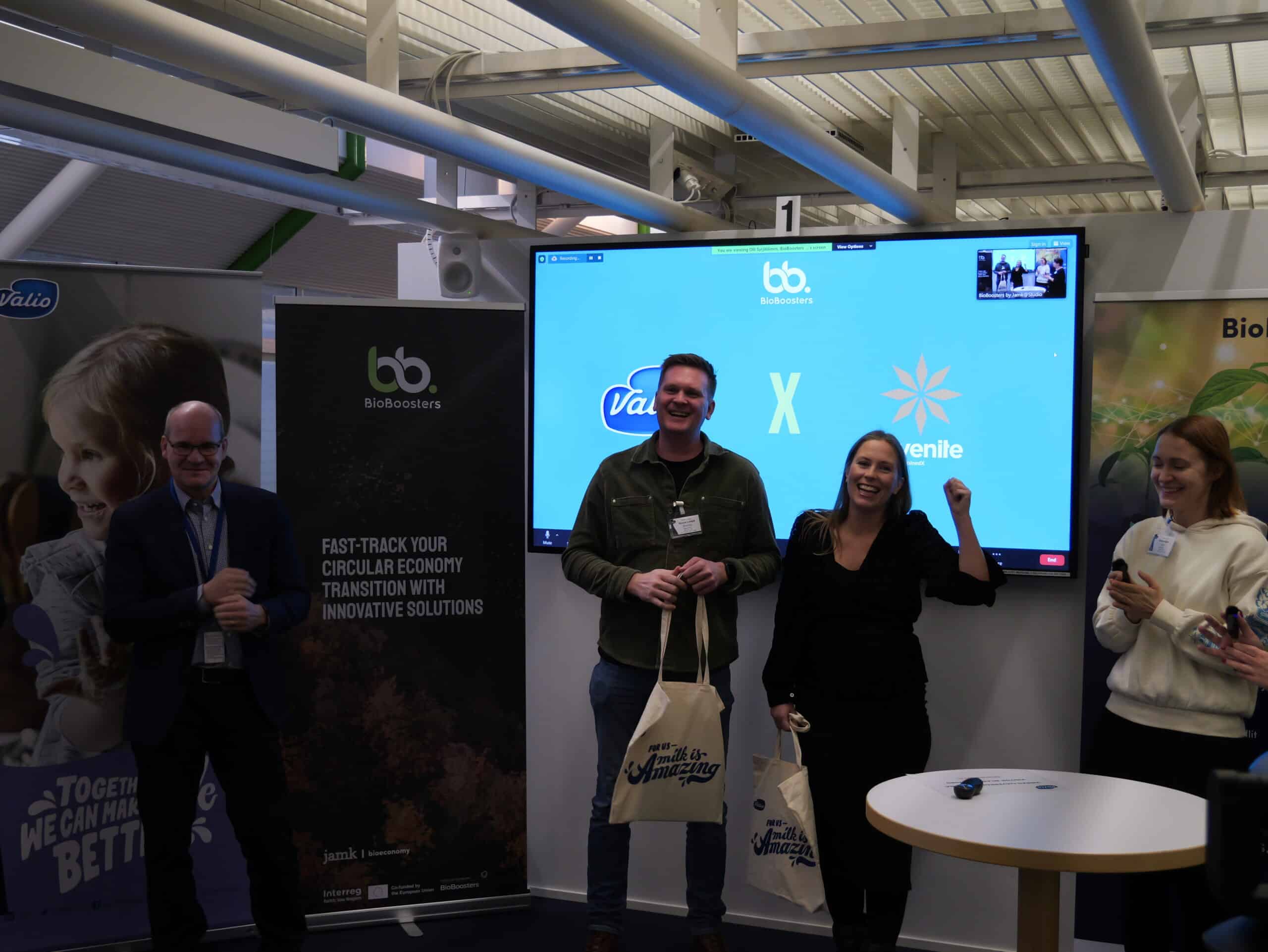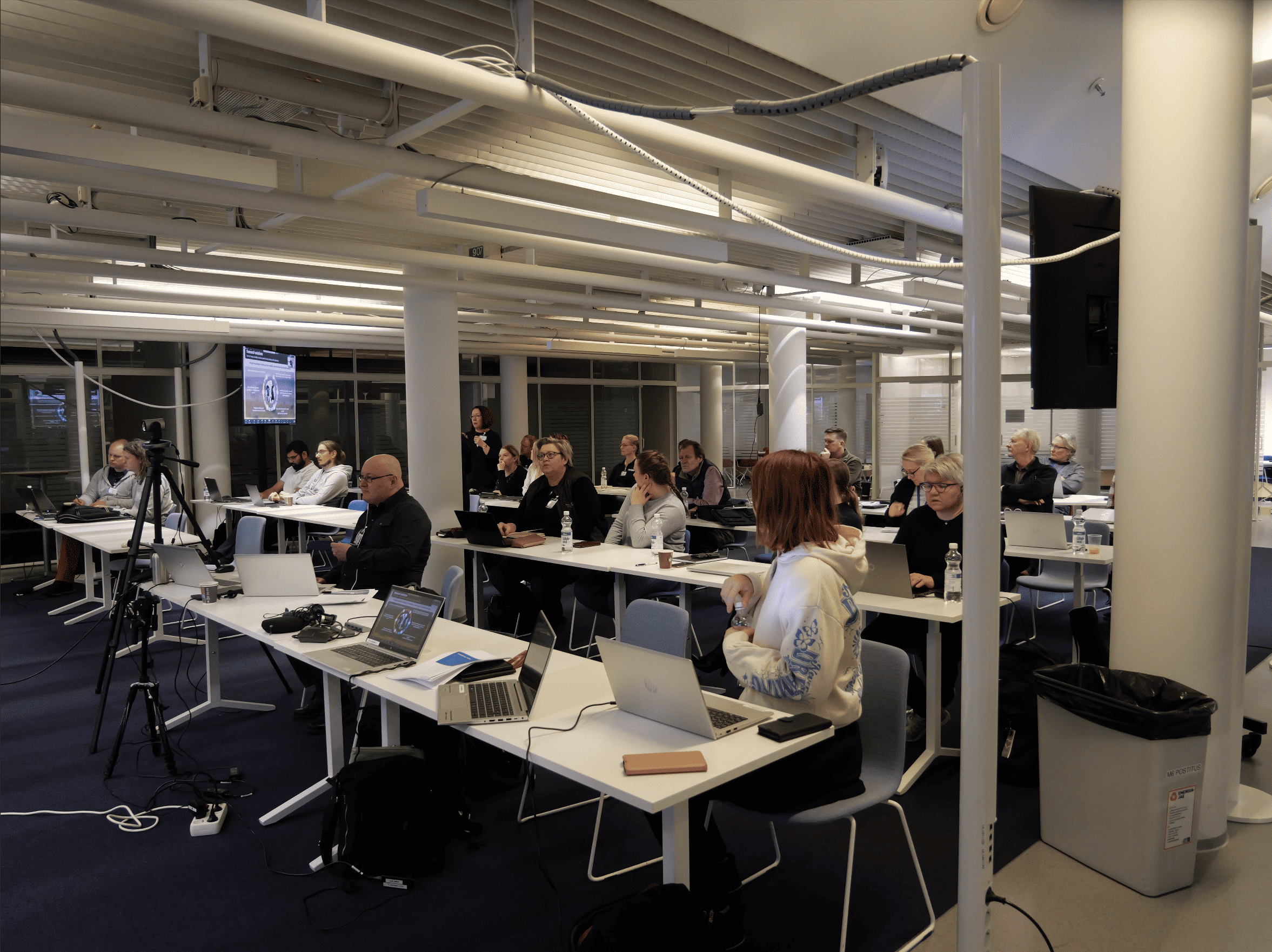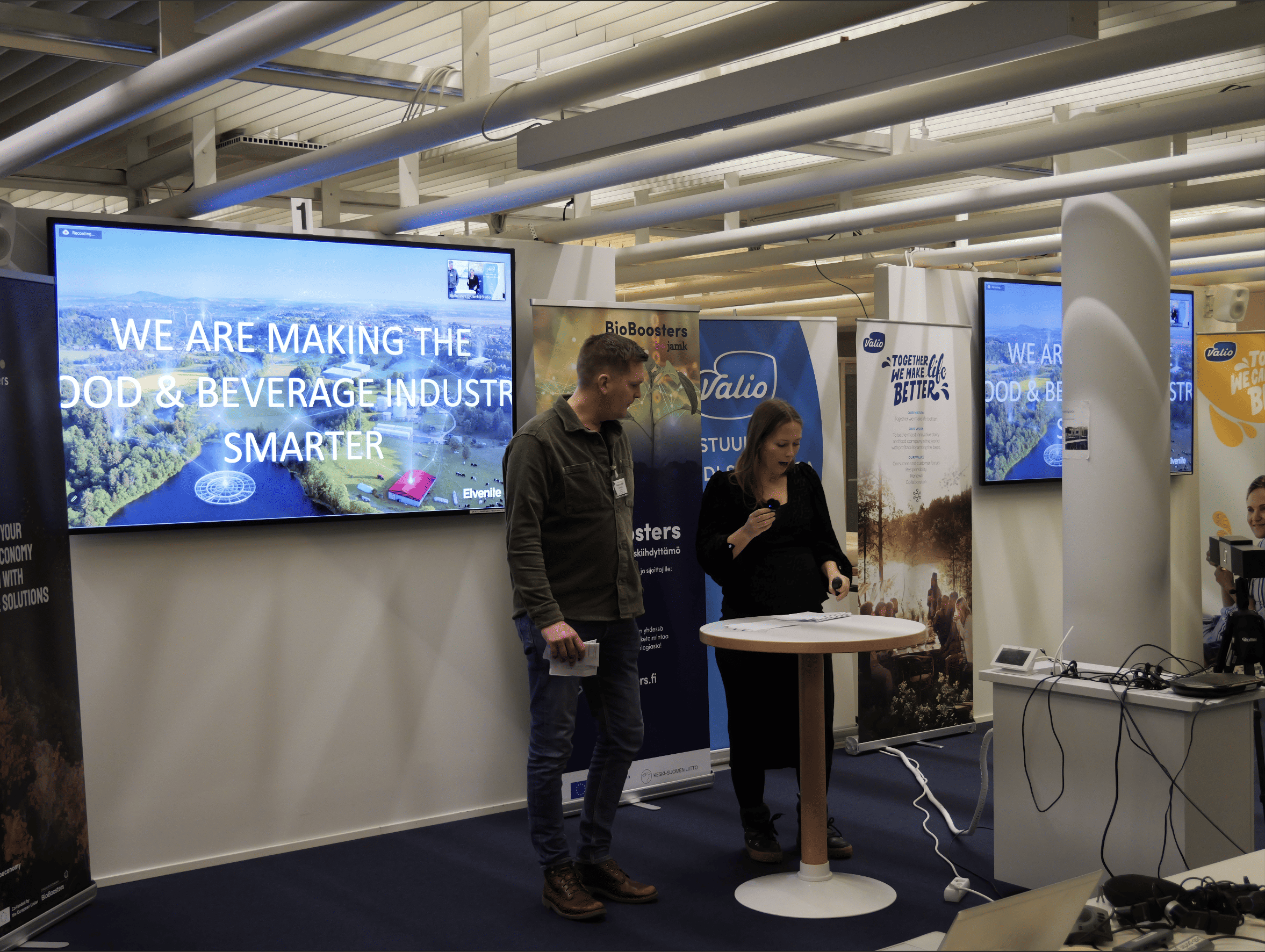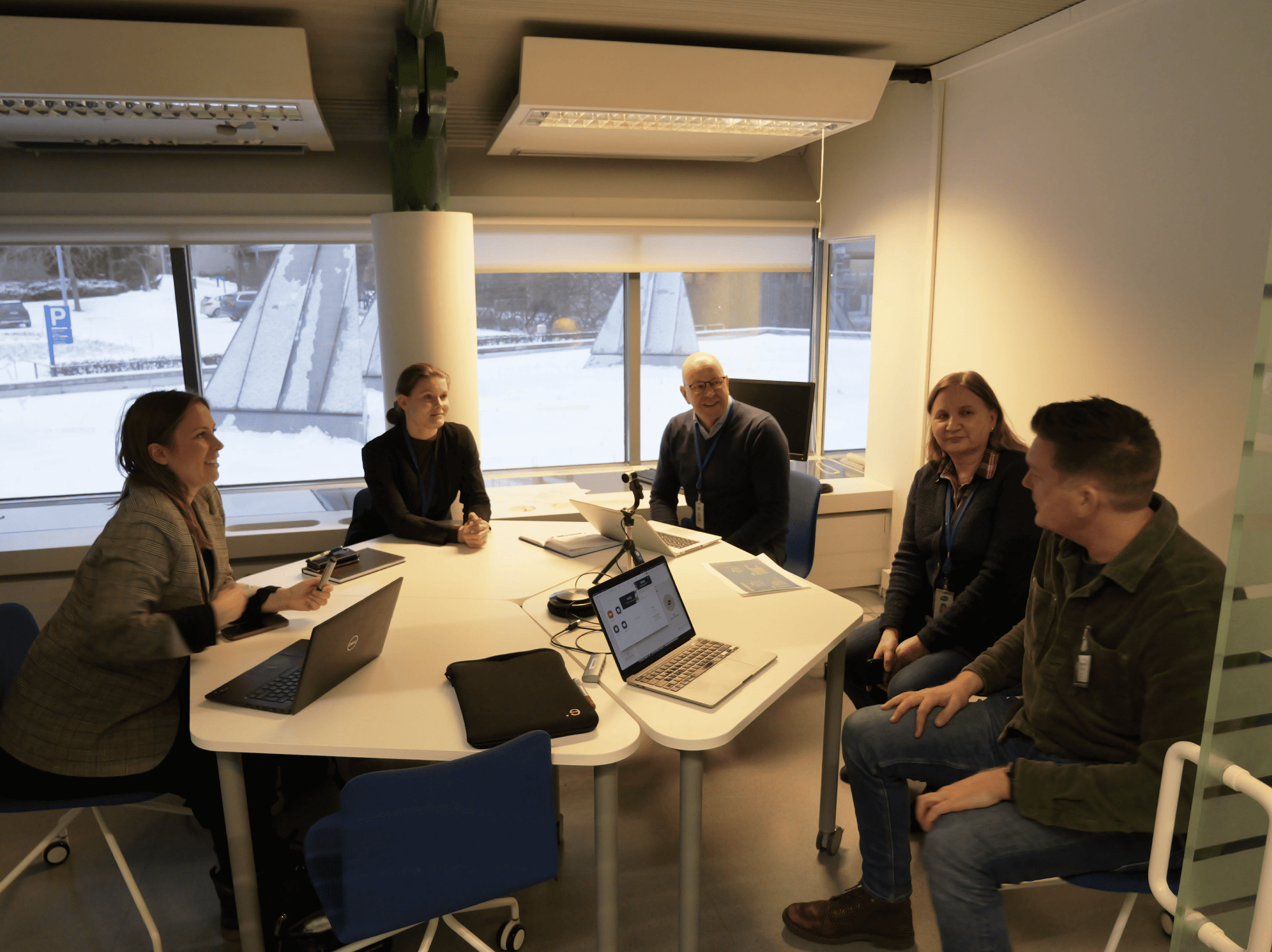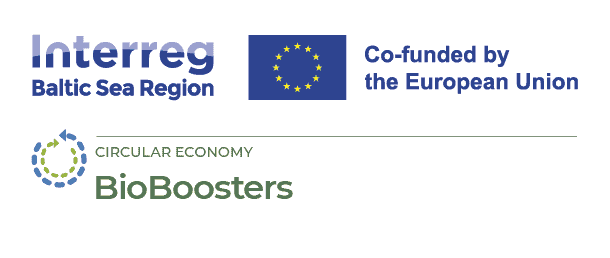
The story about ValioHackathon
11 December 2023
ValioHackathon
Connecting 45 participants and 13 organizations across the Baltic Sea Region to tackle Valio’s challenge of seasonal variation in milk production. The aim of the Hackathon was to find solutions to managing and lowering the seasonal variation of milk production with cost-effective farm level solutions to be implemented by Valio Ltd. or Valio’s dairy farm co-operatives. Following an open call for solutions and a development phase with selected teams, the ValioHackathon days were organized in Helsinki in December 27-28, 2023.
Read more about the process from the interview with Anna Aalto from Jamk University of Applied Sciences, as the coordinator of the ValioHackathon process.
What makes BioBoosters Hackathon unique?
BioBoosters Hackathon concept developed originally in Jamk University of Applied Sciences has proven very effective in launching business-driven R&D co-operation. As organizers, we operate in a very business-driven approach trying to offer a lean and efficient process for all participants. The process works flexibly online or hybrid with application of professional digital platforms and facilitation of online co-working and collaborative learning.
The starting point of each hackathon is a real-life challenge from a company that is looking for partners, knowhow, and solutions for responding to that challenge. This forms an interesting premises for SMEs and startups, as well as more research-oriented teams, to join the open innovation dialogue as they are given the opportunity to test and develop their idea in dialogue with a potential client, as well as a wide range of experts. For experts joining as mentors from academy, public and advocacy organizations, the process offers a chance for learning and experience exchange. For a mentor, the hackathon day involvement gives a chance for in-depth industry dialogue and insights into drivers and barriers of change that the companies are experiencing. It is a learning and networking opportunity that the mentors can also use for joining the launching business-driven R&D co-operations.
Our success rate for launching partnerships and eventually for implementing new solutions is high due to the win-win situation benefitting both challenge provider companies and solution provider teams. We have been able to attract very talented teams, often representing innovative and growth-oriented SMEs, to join the Hackathons, thus delivering high added value for our clients, the challenge providers. What sets us apart from many hackathons, is a strong business orientation, and of course, a cross-sectoral international network connecting prominent bioeconomy innovation ecosystems across the Baltic Sea region.
What is the impact of the BioBoosters Hackathon?
What we saw well in the case of the ValioHackathon as well some earlier Hackathons was that we ended up learning a lot about the challenge itself. As it is often the case in the busy daily operations, one key reason why the challenge is not solved, can simply be that we lack the time (and process) to jointly focus on the issue and to deliberate the problem with support of experts in a comprehensive manner. As the Hackathon will provide a dedicated process for this, there is a chance to collectively focus and identify the best way forward and to find a consensus on the needed path.
In the case of ValioHackathon, all the expert interaction from research institutions, dairy farm counselling organizations, animal health professionals and technology companies revealed that we do not actually have adequate understanding of why we are experiencing high seasonal variation in the milk production in some farms and low in others. There are several contributing factors, such as management of inseminations at the farm, quality of feed, heat stress etc., and many of the teams had good solutions for tackling some of these individual factors and their effect on seasonal variation. However, it was difficult to estimate the impact of these measures to solving the challenge of seasonal variation without a thorough understanding of the main root causes of the issue. The winning solution from Elvenite AB was addressing the need to start with a better understanding of the root causes via development of a data model utilizing data sets from farms with high and low seasonal variation in milk production. Thereafter, the action plans for farms and solutions could be prioritized.
What kind of help you got from the international partnership in organizing a BioBoosters Hackathon?
We got six international applicants to ValioHackathon, five of them via the active scouting done by the BioBoosters network partners. One of these applicants was the winner of the Hackathon, Elvenite AB from Karlstad, Sweden, so we are very happy to have had the support of the BioBoosters network in the marketing of the Hackathon. In addition, we got a team of mentors joining us from the Estonian University of Life Sciences to strengthen the expertise of animal health and sciences. The BioBoosters network helped us to make this an international Hackathon which also showed in the results. In fact, the international dialogue notably improved the outcome of the process as there was a better chance to compare the conditions of seasonal variation also between the countries in the Baltic Sea Region, which also resulted in a more in-depth dialogue about the root causes.
What lessons would you like to share with other Hackathon organizers?
I would say that it is important to trust the process. As organisers, our role is to facilitate people interested in the subject to come together and to focus working on the challenge. We need to make sure that relevant knowhow is available, and that diverse expertise is connected to the open innovation dialogue. We need to make sure that the process is smooth and the needed information is available to enable all participants to focus on working on the challenge within the limited time they can spare.
During the 2-3 month process, it might at times seem that we lack the solutions or cannot find the exact answers to the challenge. As an organizer, you experience a lot of uncertainty along the way. Applications can come in the last minute, and the applicants may have different ideas than what was expected. Also, many of the practical issues can only be finalized after you have the selected teams, so you cannot plan all in advance. Still, as a first-time Hackathon organizer, I can say that all the steps of the process have shown their importance and, in the end, we have gotten very positive feedback from all participating groups. To put it shortly, the process works!






